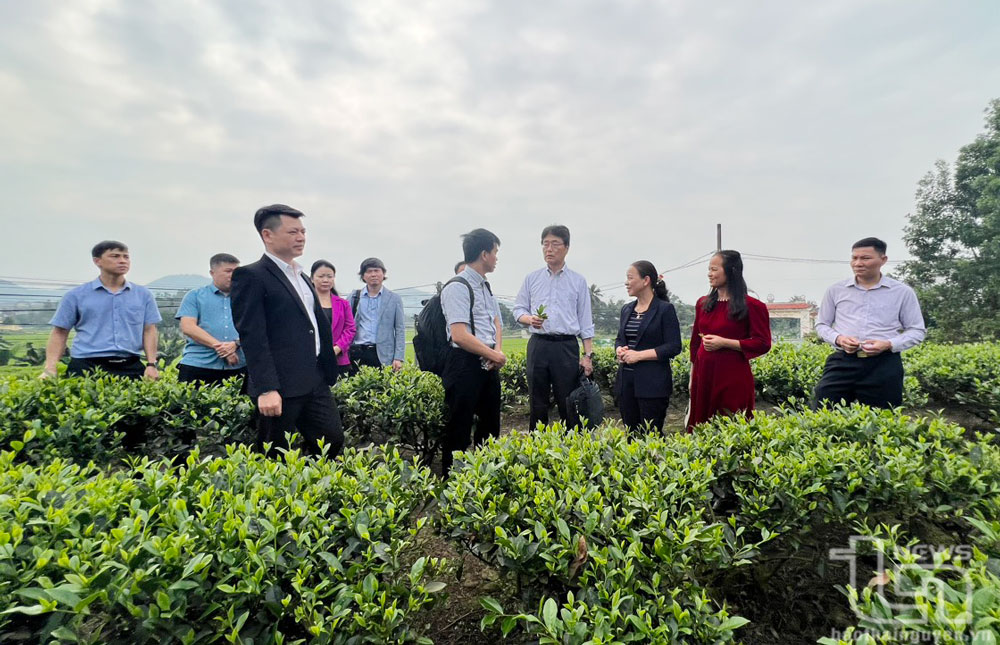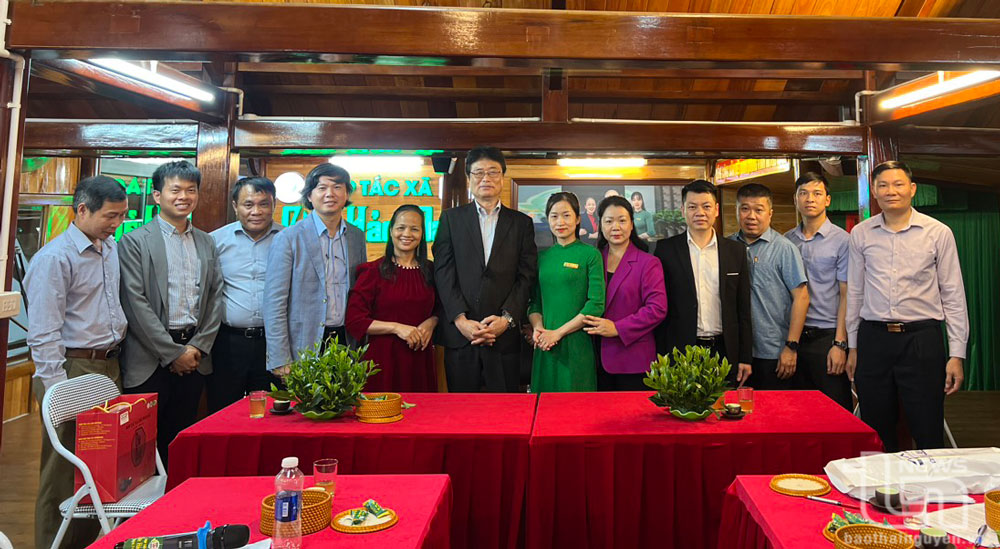On March 7, at the Hao Dat Tea Cooperative (Tan Cuong commune, Thai Nguyen City), the Department of Science and Technology led a working session with Professor Kubo Mutoki (from Ritsumeikan University, Japan) to examine and introduce the bio-solution SOFIX for soil improvement in tea cultivation.
 |
| Professor Kubo Mutoki (Ritsumeikan University, Japan) and delegates inspect tea cultivation, care, and processing models. |
During the session, Professor Kubo Mutoki shared that the SOFIX technology utilizes organic compounds, commonly used in organic farming, to minimize the use of fertilizers and pesticides. This technology harmonizes organic matter and microorganisms, promoting environmentally friendly organic agriculture. It helps diagnose soil acidity based on the quantity of microorganisms and adjusts accordingly to suit different soil conditions. Organic SOFIX cultivation has been successfully implemented in Japan, achieving yields equivalent to or higher than chemical cultivation while reducing production costs by 20-30 percent.
After the working session, representatives from relevant departments in the province will develop a plan to experiment with SOFIX biotechnology in a designated tea cultivation area. This initiative aims to provide specific evaluations and directions for improving tea cultivation, reducing production costs, enhancing product quality, and increasing competitiveness.
 |
| Thai Nguyen's delegates and Professor Kubo Mutoki (Ritsumeikan University, Japan). |
Thai Nguyen currently cultivates 22,300 hectares of tea. In 2023, the yield of fresh tea buds reached 267,500 tons. Alongside the shift in seed structure, the province has emphasized the application of advanced science and technology in the production and processing of VietGAP-certified and organic tea, aiming to improve product quality and promote sustainable agriculture development.








Thông tin bạn đọc
Đóng Lưu thông tin